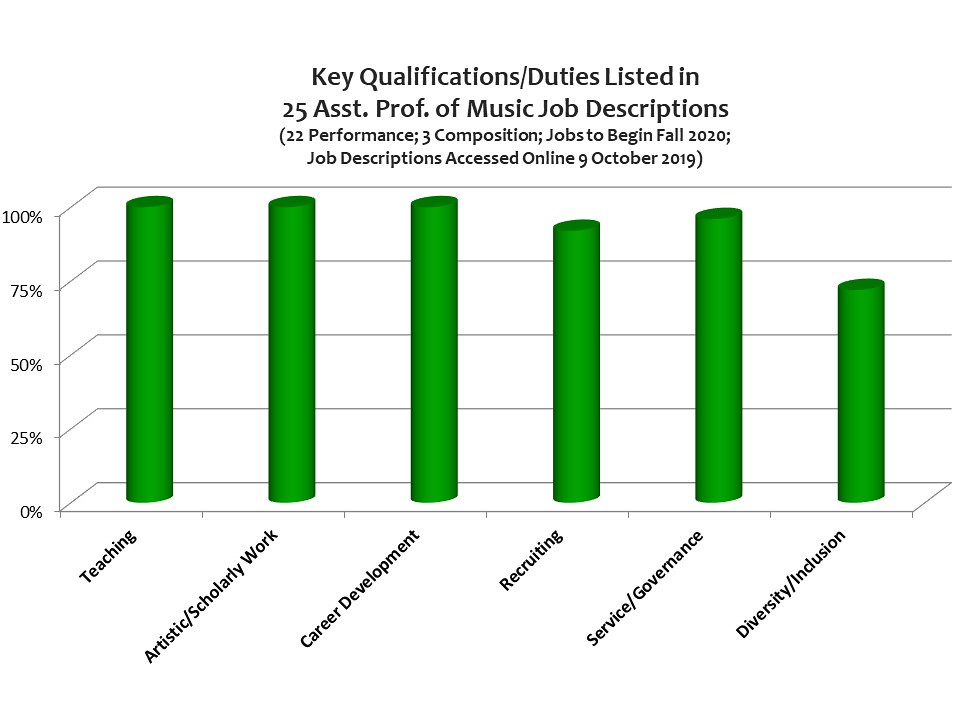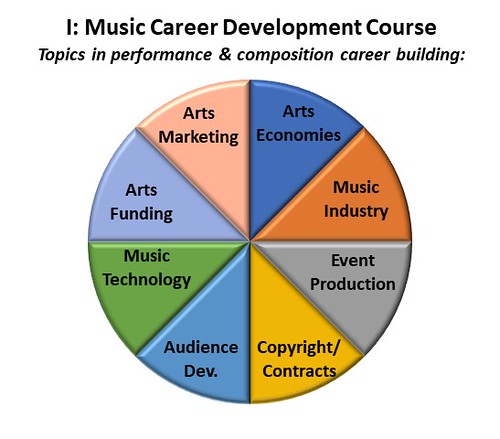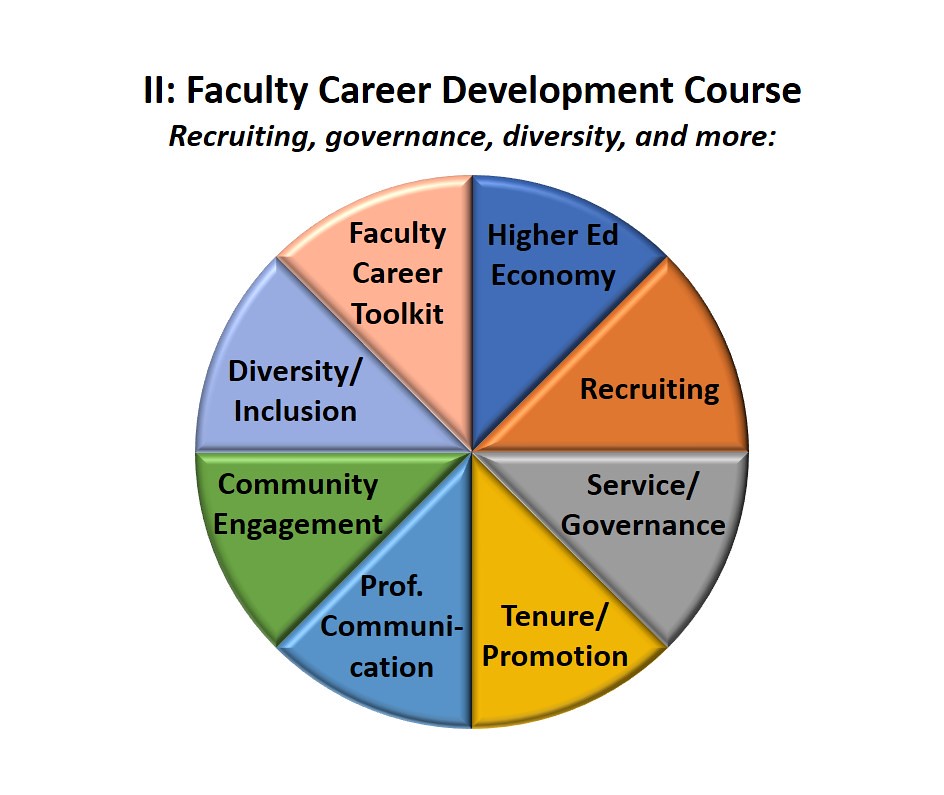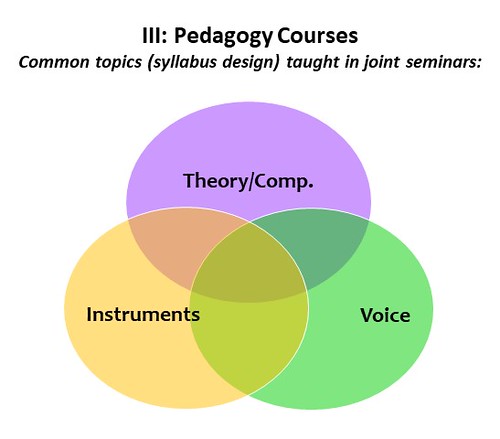
Although universities sometimes hire renowned musicians who lack doctorates, hardly any aspiring educators these days will win tenure-track studio teaching roles without such a terminal degree.
Unfortunately, as I’ll show here, accredited DMA programs don’t normally equip graduates with the comprehensive qualifications that universities seek in new faculty. Ph.D. programs in music composition do no better. Combine that with the hyper-competitive job market, and the result is that not many doctoral candidates will land tenure-track jobs upon completing their educations.**
In response, I’ve developed a practical plan for music schools to update their doctoral offerings so that graduates attain robust qualifications.
Let’s begin by examining the qualifications listed in tenure-track, applied music faculty vacancy announcements and compare them with the courses required in typical, accredited DMA, Ph.D., and DM curricula (I’ll use the term DMA from here on).
Faculty Job Qualifications vs. DMA Curricula
1. Qualifications Sought by Tenure-Track Music Faculty Employers
In October 2019, I identified six key qualifications, other than an earned doctorate, found in announcements for 25 active, tenure-track Assistant Professor of Music searches at universities across the U.S. The employers sought to hire applied faculty with specializations in either composition or performance. Chart 1 compiles those six qualifications and shows the percentage of job descriptions that mentioned them.

Chart 1: Key Qualifications, other than an Earned Doctorate, in 25 Asst. Prof. of Music Job Descriptions
Category Definitions
- Teaching: Record of success instructing students in lessons, classes, ensembles
- Artistic/Scholarly Work: Significant accomplishments and impacts demonstrated
- Career Development: Ongoing professional activity such that future work will meet the criteria for promotion and tenure
- Recruiting: Evidence of success enrolling and retaining students in a teaching studio along with the ability to recruit students to the hiring institution
- Service/Governance: Past contributions to an institution and a discipline, experience with organizational governance (e.g., by serving on committees), and capacity to execute university governance duties
- Diversity/Inclusion: Knowledge of and commitment to practices for recruiting and educating students from varied backgrounds
2. Qualifications Addressed by Compulsory DMA Coursework
The next chart displays the percentage of doctoral music curricula that require courses addressing each of those six key qualifications. I accessed the curricular information online at 14 U.S. university and conservatory websites on the same day that I viewed the 25 job descriptions (Oct. 9, 2019). The performance curricula encompass various instruments and voice.

Chart 2: Key Qualifications Addressed in 25+ Doctoral Curricula at 14 U.S. Music Schools
Chart 2 makes plain that DMA programs concentrate on artistic and scholarly competencies, which they do via compulsory lessons, recitals, and academic classes. Only half of the curricula I inspected require pedagogy training; none oblige candidates to enroll in courses that explore career development nor the other three competency domains valued by university employers.
Again, Chart 2 shows my findings for required courses. Some DMA programs offer optional classes that build additional qualifications, but unless courses are compulsory, some if not many students won’t enroll in them and, as a result, likely be deficient in job-readiness. I’ve also learned from experience that international and first-generation graduate students are most ill-served when schools don’t require courses that strengthen key competencies.
Moreover, I didn’t scrutinize course content at each school, and I’m not implying that comparably named courses are equivalent at every institution. Some pedagogy classes, for instance, include actual teaching and rightly focus on best practices, among them, how to articulate learning outcomes, construct syllabi, sequence instruction, and assess student learning. Doctoral candidates taking such well-designed classes gain meaningful qualifications. Other so-called pedagogy courses might merely survey historic method books and not furnish candidates with much consequential know-how.
“International and first-generation graduate students are most ill-served when schools don’t require courses that strengthen key competencies.”
3. Causes of the Mismatch between Curricula and Employer Needs
How can there exist such a mismatch between doctoral curricula and employer requirements?
Much of the fault lies with accreditation agencies, especially NASM, which ignores employment outcomes. Blame also falls in the laps of music school faculty and administrators who neglect to adapt their curricula in line with the evolving nature of the music industry and the needs of doctoral graduates and higher education employers.
Regardless of culpability, the reality is that, over the past 50 years, the music and higher education industries have transformed, yet DMA programs have largely remained unchanged.
In case you’re questioning my focus on job placement, I’m not discounting the intrinsic value of doctoral education. But the DMA was in fact conceived to arm graduates with the qualifications needed for tenure-track faculty jobs. It’s a professional degree with a targeted employment objective. Furthermore, all of the DMA candidates I’ve encountered, and I’ve met hundreds, pursued the doctorate primarily because they sought full-time faculty roles.
I’d also like to point out that some non-arts professional degree programs, such as the MBA, earn accreditation based on both their inputs and outputs; that is, a combination of the instruction supplied and the employment outcomes of graduates. Why shouldn’t we hold DMA programs to similar standards?
I’m convinced that we can and should hold DMA programs to the highest standards for instructional quality and employment outcomes. To do so, I propose that we refurbish both curricula and advising.
“Over the past 50 years, the music and higher education industries have transformed, yet DMA programs have largely remained unchanged.”
Closing Qualification Gaps: Curriculum
First, let’s acknowledge that doctoral curricula are rigorous, and there isn’t room to add courses without removing others. What, then, can we cut?
Given that DMA candidates take numerous music history and theory courses before embarking on doctoral studies, I submit that schools can sensibly cut six semester credits of required music theory and/or history electives (that’s electives, not the core courses tied to qualifying exams).
I propose that we replace those six elective credits with three compulsory 2-credit courses that delve into professional studies and pedagogy themes (Charts 3-5). Courses could incorporate online or blended instruction as well as project-based learning:
- Music Career Development
- Faculty Career Development
- Music Pedagogy
If you’re wondering whether adding those subjects signifies a decline in academic rigor, note that high-level scholarship takes place in fields such as music industry, arts entrepreneurship, higher education economics, diversity & inclusion, and music pedagogy. Studying those and other pertinent domains in the context of building professional qualifications doesn’t amount to a descent into second-rate scholarship. On the contrary, it’s appropriate that we expand contemporary DMA studies, akin to how doctoral programs in other disciplines, notably medicine, oblige candidates to assimilate broader and deeper knowledge-bases than their predecessors.
“We can and should hold DMA programs to the highest standards for instructional quality and employment outcomes.”
Charts 3 & 4 depict topics I suggest including in music and faculty career development courses.
I. Compulsory 2-Credit Music Career Development Course
The Music Career Development Course I propose would investigate the essentials of building performance and composition careers apart from academia.

Chart 3: Proposed Topics for a Graduate-level Music Career Development Course
Some DMA programs might offer additional electives, practicums, internships, or even certificates in Music Industry and Entrepreneurship such that graduates amass sufficient expertise to realize complex creative projects and cultivate new and more diverse audiences for their music.
II. Compulsory 2-Credit Faculty Career Development Course
The Faculty Career Development course I envision would probe how to attain and succeed in tenure-track faculty positions as well as contribute to academic and non-academic communities.

Chart 4: Proposed Topics for a Graduate-level Faculty Career Development Course
The topic I label Faculty Career Toolkit would encompass the preparation of comprehensive job application materials, which would be crafted by candidates in collaboration with career advising staff (Chart 7), and then graded by the instructor of the faculty career development course. The Professional Communication component would zero in on presentation, writing, and public speaking competencies as well as familiarize international students with vital customs. Through the study of Higher Education Economics, Diversity & Inclusion, and Tenure and Promotion Practices, candidates can pilot their careers accordingly.
III. Compulsory 2-Credit Pedagogy Course
Chart 5 depicts a structure for schools to provide all DMA candidates with pedagogical knowledge and skills.

Chart 5: Depiction of Proposed Structure for Graduate-level Pedagogy Instruction
I don’t advocate for scheduling entirely separate pedagogy tracks for each music specialty. Instead, universal topics – such as syllabus construction, occupational health, and the basics of teaching and learning – can be covered in seminars attended by all DMA candidates. Textbooks could include:
- Higher Education by Design, by Bruce Mackh (Routledge, 2018)
- Make it Stick: The Science of Successful Learning, by Brown, Roediger, and McDaniel (Belknap, 2014)
- The Musician’s Way: A Guide to Practice, Performance, and Wellness, by Gerald Klickstein (Oxford, 2009; 16th printing, 2020).
To study the rudiments of vocal, instrumental, or theory/composition pedagogy, if enrollment warrants, candidates can disperse into domain-specific seminars for portions of semesters. They can also do research projects. Larger institutions might offer supplemental pedagogy courses, practicums, or certificates.
Ideally, all DMA candidates would engage in part-time teaching while earning their degrees so that they gain track records of effectively recruiting, instructing, and working with diverse students. But for many candidates to discover and favorably apply for part-time instructional roles, skillful advising is crucial.
Closing Qualification Gaps: Advising
I recommend revamping both academic and career advising for doctoral candidates.
I. Academic Advising
DMA academic advisors can do far more than ensure on-time graduation. I contend that they should also guide candidates to access experiential learning opportunities, such as part-time teaching, that apply coursework and fortify candidate qualifications.
As an illustration, academic advisors can assist candidates to gain governance and other valuable experience through campus service and participation in professional associations; they can prompt candidates to present at a DMA colloquium; in collaboration with career advising staff, they can steer DMA candidates toward opportunities for internships, assistantships and field projects as well as part-time teaching (Chart 6).

Chart 6: Representative DMA Experiential Learning Activities to be Overseen by Academic Advisors
II. Career Advising
The fundamental aim of DMA career advising should be for candidates to: 1. craft the materials needed to apply for faculty positions; 2. acquire job search, interview, and negotiation skills (Chart 7).

Chart 7: Components of a DMA Career Toolkit to be Overseen by Career Advisors
Due to the scope of the faculty career toolkit, candidates should be notified by their academic advisors to compile draft materials before they enroll in a faculty career development course. Staff at university career centers can counsel DMA candidates in all of the toolkit elements, albeit some general-practice career counselors may need training in the idiosyncrasies of music careers.
“It’s appropriate that we expand contemporary DMA studies, akin to how doctoral programs in other disciplines, notably medicine, oblige candidates to assimilate broader and deeper knowledge-bases than their predecessors.”
Implementing Change
1. Ethical and Existential Imperatives
It’s not easy for educational institutions to revise curricula, but ethical and existential issues compel us to act.
That is, if schools declare in their mission statements that they will prepare graduates for professional careers, but the degrees they confer don’t deliver on that promise, then their failing is, in my view, unacceptable. Eventually, institutional researchers will discern such poor performance, and then program funding may be withdrawn.
In other words, the changes I propose to DMA programs can not only help music schools achieve their missions and doctoral candidates reach their goals but also contribute to the financial sustainability of DMA-granting institutions.
2. Quality Enhancement
To renovate DMA programs, I recommend that schools undertake the following steps, once a core group of stakeholders concurs that updating is needed:
- Convene a committee, comprised of faculty, leadership, alumni, and advising staff representatives, to hammer out a Quality Enhancement Plan (QEP) and spearhead its implementation; appoint a caring faculty chair to lead efforts from planning through implementation and assessment.
- Survey DMA graduates from the past decade or so to determine their career outcomes, annual earnings, education debt, educational satisfaction, and ideas for program enhancement.
- Based on survey findings, committee input, and institutional goals, draft a QEP; seek feedback from stakeholders, and then amend the QEP to arrive at a final version.
- With a complete QEP in hand, obtain official faculty approval, institutional support, and funding for implementation.
- Once backing is in place, execute curricular changes; plan for advisor and faculty training, hiring, or reassignment; finalize course content and syllabi; create tools to assess courses, advising, and outcomes.
- Publicize the new DMA program; wrap up any training and hiring; enroll a fresh class of candidates.
- Launch the updated DMA program, keep detailed records, track alumni, and then publish your data on the development, implementation, and outcomes of your renovated program.
3. Final Thoughts
I first presented the above charts and concepts in a poster at the 2019 national conference of the College Music Society.
If you’d like assistance designing and implementing curricular, advising, or experiential learning innovations at your institution, whether for graduate or undergraduate programs, I offer a range of consulting services. Contact me to discuss possibilities.
* * *
*I use the term DMA in this article to succinctly refer to all types of doctoral degrees earned by performers and composers who pursue tenure-track faculty employment (e.g., many composers earn a Ph.D. instead of a DMA, and select institutions confer the Doctor of Music or Doctor of Arts in place of the DMA).
**General info about music alumni outcomes is available on the website of the Strategic National Arts Alumni Project. Few music schools track and publish DMA alumni employment outcomes, so we lack precise data regarding the percentage of graduates who win tenure-track jobs each year. Nonetheless, the number of tenure-track applied music faculty searches taking place each year in the U.S. represents a small percentage of the number of DMA graduates seeking full-time positions.
Related posts:
6 Keys to Music School Survival
10 Reasons to Pursue a Graduate Degree in Music
Applying for Music Faculty Positions
The Master-Apprentice Model Is Dead
Supply and Demand for Classical Musicians
© 2020 by Gerald Klickstein. All rights reserved.
Photo via Pixabay

